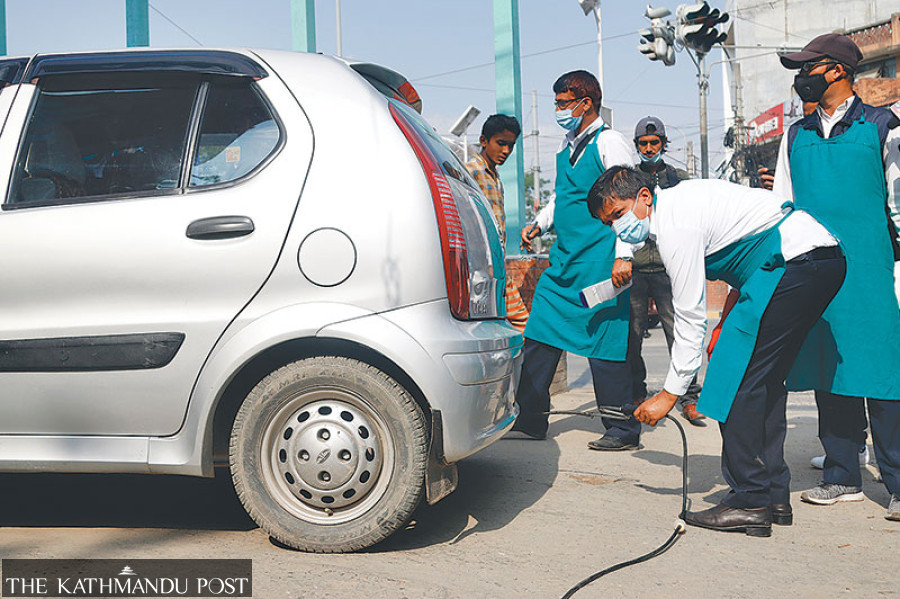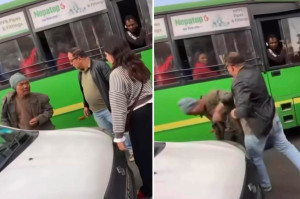Kathmandu
74 percent of diesel vehicles and 20 percent of petrol vehicles fail emission test
Kathmandu Metropolitan City officials say vehicles over 20 years old were found causing excessive pollution.
Post Report
Seventy-four percent of diesel vehicles, including 20-year-olds still plying the roads in Kathmandu Valley, failed the emission tests carried out by the Kathmandu Metropolitan City in recent days.
According to the Environment Department, under the metropolis, 193 out of 261 buses, micro-buses and Tata pick-up trucks operating on Kathmandu’s roads failed the emission test. Only 68 such diesel vehicles passed the test.
Similarly, 20 percent of petrol vehicles (both private and government cars)—14 out of 71—failed the emission test.
“A huge number of diesel vehicles tested recently have been found emitting black smoke well beyond permissible levels,” said Jagatman Shrestha, traffic expert adviser at the Kathmandu Metropolitan City office.
“Many vehicles operating in Valley’s roads for over 20 years have also failed the emission test.”
The government has announced several times in the past its intention to ban vehicles older than 20 years throughout the country to reduce vehicle congestion, curb air pollution, and cut down on road accidents caused by ageing vehicles. However, the decision has not yet been implemented.
Random on-the-spot emission testing of vehicles has been a long overdue plan of the metropolis in its attempt to tackle the growing air pollution in the Valley.
The emission tests were conducted over several days, starting January 13, in coordination with the traffic police, and the federal government’s Department of Environment and the Department of Transport Management.
The city office has warned drivers and vehicle owners to keep their vehicle engines maintained to avoid fines and legal action, and has obtained written commitments from vehicles that failed the test.
Shrestha said the metropolis would slap fines on the vehicles if they did not maintain their engine within a week.
“The law has given local governments the power to prohibit the operation of vehicles that continue to emit black smoke,” said Shrestha. “Currently, we have been carrying out emission testing for awareness purposes, but will soon start taking stern action if the instructions are not followed.”
Officials at the department said that testing will continue in the coming days.
The city office has purchased two smoke meters (a portable device for testing vehicle emissions)—one for diesel vehicles and the other for petrol vehicles—to conduct the tests.
Two mechanical engineers have been trained to carry out the emission checks.
Although vehicle emission testing is mainly the responsibility of federal government agencies, the constitution also mandates local governments to take measures to reduce pollution, officials say.
The metropolis has developed pollution control guidelines as per the KMC Environment and Natural Resources Protection Act-2021.
Officials say they have been testing vehicles that have already passed emission testing from the Department of Transport Management and received green stickers, as is standard for all four-wheelers on the road. However, some vehicles still emit black smoke for various reasons, including lack of timely servicing and maintenance.
Many automobile owners only get their vehicles serviced before the annual pollution test.




 9.83°C Kathmandu
9.83°C Kathmandu










